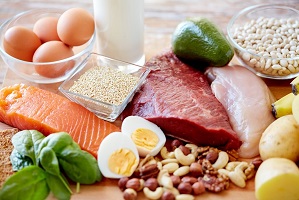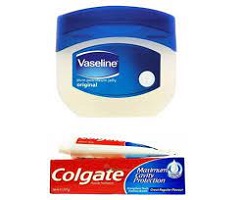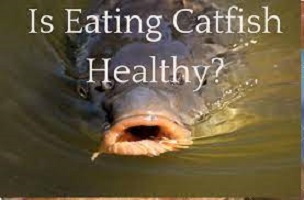High Protein Low Calorie Foods
High Protein Low-Calorie Foods
Foods To Add to Your Weight Loss Diet
Choosing foods that are high in protein and low in calories is a wonderful place to start if you want to maintain a nutritious diet while keeping your calorie intake under control.

Your body’s cells are made entirely of protein. Protein is required by your body to create new tissues and repair damaged ones.
Low-calorie foods can help you lose weight and maintain your weight loss over the long run, whereas protein-rich foods may make you feel full and content.
Increasing your protein intake can help you maintain the lean muscle mass you’ve been working so hard to develop.
Which in turn promotes healthy metabolism and makes it slightly simpler to lose fat and maintain weight loss over the long term.
Making hormones, enzymes, and other bodily compounds requires protein.
Many people try to find ways to increase the amount of protein in their meals because of the part that protein plays in developing muscle.
However, it’s important to look for low-calorie strategies to increase your diet’s protein intake.
But where do you start looking for the best high-protein foods for your needs?
Even though protein occurs naturally in a wide variety of foods, not all of them are regarded as “good” or “excellent” sources of this beloved macronutrient.
Table of Contents
Low Calorie High Protein Foods
A food must have at least 10 grams of protein per serving to be categorized as high protein.
You should also search for protein density in your choices when aiming for a high-protein, low-calorie diet.
More than 20% of the calories in foods that are protein-dense come from protein.
The easiest sources can occasionally be the best. To meet your daily macro objectives, you don’t require any expensive fast food; whey protein powder, protein smoothies, or protein bars.
In actuality, many processed and packaged high-protein options aren’t always preferable to whole-food alternatives.
They frequently contain extra fats, sweets, and other garbage that not only hurts nutrition and macro balance but can also raise the calorie count.
What Is Protein?
Protein could appear to be the elusive gains-maker.
However, in simple terms, they are large, complex molecules that play many vital roles in the body.
They do most of the work in cells and are required for the structure, function, and regulation of the body’s tissues and organs
Protein is also an organic substance made up of one or more amino acids, also referred to as the “building blocks” of your body
The building blocks for developing, healing, and maintaining tissues including muscle, organs, hair, and nails are amino acids.
Nine of the twenty different amino acids required to create proteins must be obtained through diet. Common names for them are essential amino acids (EAAs).
Why Do Athletes Who Use Strength Need Protein?
You can train as hard as you like, but nothing can be created from nothing.
Your muscles won’t be able to undergo maintenance or hypertrophy without the right nourishment to support them.
No matter how hard you work out, if you don’t get the protein you need to support the process, you simply won’t become bigger.
Protein synthesis—the process by which your cells generate proteins—can be increased by eating enough protein.
This is important for preserving your daily functioning, but strength athletes wanting to gain muscle mass especially need to pay attention to it.
Meaning of Low-Calorie High-Protein Foods
Everybody has a different calorie requirement; therefore, this varies from person to person.
You need to establish a healthy calorie budget and then stick to it as closely as you can to attain your body objectives, depending on what your weight gain or reduction goal is and depending on your present level of activity.
If you want to lose weight, setting a timetable and taking it week by week might be helpful.
Find out how much weight you can drop without endangering your health.
Whatever your calorie budget, it pays to be aware of some nutritious, high-protein, low-calorie items that you may include in your diet to hasten the weight-loss process.
Protein Importance and Daily Requirements
Protein is a component of hemoglobin, which transports oxygen in human blood, and enzymes that power numerous chemical reactions, according to Harvard T.H. Chan School of Public Health.
Protein is made from over 20 building blocks, known as amino acids, that are either created by our bodies entirely from scratch or by the modification of existing amino acids.
Leucine, lysine, histidine, methionine, phenylalanine, valine, tryptophan, threonine, and isoleucine are the nine essential amino acids that must be present in our food.
One should consume 0.8 grams of protein per kilogram of body weight, according to an often-stated daily recommended limit for dietary protein.
American non-profit agency The National Academy of Medicine recommends that one should get between 10 and 35% of their daily calories from proteins.
There is disagreement over how many calories of protein should make up a person’s daily diet, however, a Harvard study revealed no connection between the proportion of calories from total daily protein intake and mortality or any particular causes of death.
However, a study from a top university shows that the protein’s source is important.
Lack of protein can result in weak immunity, slowed growth, loss of muscle mass, problems with the heart’s health, and an increased chance of death.
Other Benefits of Protein
Protein has several special advantages in addition to being necessary for the maintenance and repair of bone, muscle, and other physiological structures;
- Thermogenic Properties
- Stay Fuller, Longer
- Improve Immunity
High Protein Low-Calorie Food
Overall, the best types of protein sources to seek out are low-fat or lean proteins and nutrient-dense proteins.
Generally speaking, this refers to low-fat meat, dairy, and seafood as well as some protein-rich plant-based diets.
Additionally, selecting a variety of foods will guarantee that you receive a wide range of nutritional advantages and make your diet interesting.
To maintain a high-protein diet, you shouldn’t have to subsist solely on chicken breast and egg whites.
Foods high in protein yet low in calories include;
Low Calories High Protein Foods:
- Chicken breast
- Turkey
- Pork loin
- Salmon
- Tuna
- Shrimp
- White Fish
- Eggs
- Greek yogurt
- Cottage cheese
- Low-fat cheese
- Edamame (soy)
- Tofu
- Tempeh
- Lentils
| Food | Serving Size | Protein Content | Calorie Count |
| Chicken Breast | 100g | 31g | 165 |
| Turkey | 100g | 29g | 157 |
| Greek Yogurt | 170g | 17g | 100 |
| Tofu | 100g | 8g | 70 |
| Cottage Cheese | 100g | 12g | 90 |
| Lentils | 100g | 9g | 116 |
| Beans | 100g | 9g | 132 |
| Quinoa | 100g | 4g | 120 |
| Egg Whites | 1 large egg | 3.6g | 17 |
| Fish | 100g | 20-30g | 144-208 |
These are only a few of the many low-calorie, high-protein foods available.
There are more readily available foods in your kitchen that contain a good quantity of protein.
You can choose from them or speak with a trained dietitian or nutritionist for advice on foods that are good for you and might accelerate your fat loss.
Healthy, Low-Calorie Snacks with High Protein
More protein in your diet has several health benefits, including maintaining the health of your heart, muscles, and bones as well as helping you control your weight.
The snacks on this list can increase your protein intake as well as your intake of fiber, healthy fats, vitamins, and minerals.
1. 2% Cottage Cheese
2. Turkey Sticks
3. Trail Mix
4. Frozen Greek Yogurt Bark
5. Egg, Cheese, and Veggie Muffins
6. Roasted Edamame
7. Turkey and Swiss Roll-Ups
8. Canned Salmon on Almond Flour Crackers
9. Collagen Chia Pudding
10. High-Protein Peanut Butter Balls
11. High-Protein Peanut Butter Celery Sticks
12. Cherry Protein Smoothie
13. Egg Salad on Cucumber Rounds
14. Protein Waffle
15. Tuna Salad
16. Roasted Chickpeas
17. Hard-Boiled Egg, Cheese, and Fruit
18. Three Ingredient Banana “Ice Cream”
19. Chickpea Greek Salad
20. Nutritious Protein Bars
| Snack | Protein Content | Calorie Count |
| Protein Bars | 10g or more | Varies |
| Greek Yogurt with Berries | 17g (170g) | 100 |
| Beef Jerky | 9g (28g) | 70 |
| Hummus and Veggies | 4g (2 tbsp hummus, 1 cup veggies) | 150 |
| Rice Cakes with Peanut Butter | 4g (1 rice cake, 1 tbsp peanut butter) | 85 |
| Cottage Cheese and Fruit | 12g (100g cottage cheese) | 90-150 |
| Edamame | 8g (1/2 cup) | 95 |
| Roasted Chickpeas | 6g (1/2 cup) | 120 |
Plant-Based Protein Sources That Are Low in Calories
- Lentils
- Chickpeas
- Tofu
- Tempeh
| Food | Protein Content | Calorie Count | Ways to Use |
| Lentils | 9g (100g) | 116 | Soups, salads, side dishes, curries |
| Chickpeas | 9g (100g) | 364 | Hummus, salads, stews, stir-fries |
| Tofu | 8g (100g) | 70-150 | Stir-fries, smoothies, soups, salads, dips |
| Tempeh | 18g (100g) | 192 | Stir-fries, sandwiches, salads, stews |
You may achieve your protein requirements while consuming a few calories if you include these plant-based protein sources in your diet.
These meals also provide several health advantages, including better digestion, better heart health, and more energy.
Best Breakfast Options with High Protein and Low Calories to Start Your Day
- Protein Smoothie
- Egg White Omelette with Veggies
- Greek Yogurt Parfait
- Quinoa Breakfast Bowl
- Overnight Chia Pudding
This low-calorie, high-protein breakfast options will help you start the day feeling satiated and invigorated, setting you up for success in your quest for fitness and weight loss.
You’ll be well on your way to achieving your health and well-being objectives by including these options in your morning routine.
Recipes with High Protein and Low Calories for Muscle Growth and Regeneration
- Grilled Chicken and Veggie Skewers
- Broccoli and Chickpea Stir-Fry
- Tuna and Avocado Lettuce Wraps
- Egg White and Vegetable Frittata
- Protein-Packed Lentil Soup
- Quinoa and Black Bean Salad
In addition to being ideal for muscle growth and recovery, this low-calorie, high-protein dishes also include essential nutrients to support your general health and well-being.
Common Errors to Avoid When Choosing Low-Calorie, High-Protein Foods
- Ignoring the overall nutritional value
- Choosing processed options
- Overlooking portion sizes
- Forgetting about fiber
- Neglecting hydration
- Overemphasis on animal protein
- Not considering food allergies or intolerances
High Protein Low-Calorie Meal Prep Ideas for Busy Weekdays
- Grilled chicken and vegetable bowls
- Protein-packed salads
- Overnight oats with Greek yogurt
- Egg muffins:
- Quinoa and bean salad
You may save time and keep up a healthy diet by implementing these high-protein, low-calorie meal prep ideas into your hectic workweek.
These meals are not only quick and easy, but they also offer vital nutrients to assist muscle growth, weight loss, and general health.
10 Low-Calorie, High-Protein Meals for Dinner Tonight
Make a delicious dinner with one of these low-calorie, high-protein meals.
- Feta & Roasted Red Pepper Stuffed Chicken Breasts
- Roasted Salmon with Spicy Cranberry Relish
- Air-Fryer Pork Chops
- White Turkey Chili
- Chicken Hummus Bowls
- Linguine with Creamy Mushroom Sauce
- Pizza-Stuffed Spaghetti Squash
- Salmon Caesar Salad
- Grilled Flank Steak with Tomato Salad
- Shrimp Cauliflower Fried Rice

The Bottom Line
A healthy diet must include foods that are high in protein and low in calories. By including these items in your regular meals, you can promote muscle growth, weight loss, and general health and fitness.
Increased satiety, better weight management, greater muscle recovery and growth, and higher metabolic efficiency are a few advantages of eating high-protein, low-calorie foods.
You can build a varied, balanced diet that satisfies your nutritional needs by choosing a variety of lean meats, seafood, dairy products, and plant-based protein sources.
Additionally, meal preparation and planning can assist you in sticking to your high-protein, low-calorie diet objectives, enabling you to maintain a healthy lifestyle even during the busiest days of the week.
To be sure you are meeting your unique nutritional needs, always seek the advice of a medical practitioner or certified dietitian before making significant dietary changes.
High-protein, low-calorie foods can be an effective aid in establishing and keeping a healthy lifestyle with the right planning and eating habits.
Disclaimer: This information, including the recommendations, is only general. It is in no way a replacement for expert medical advice. For more information, always speak with a specialist or your physician.


